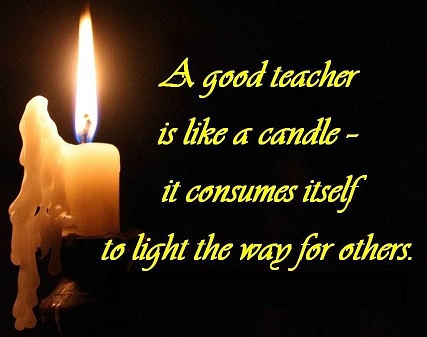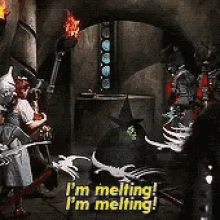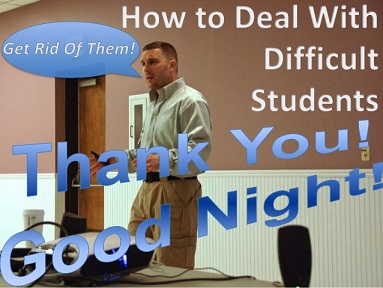 I don’t like to lie to my students. I try not to, but it’s not always easy. Sometimes it’s literally required by the folks signing my paycheck, creating what we in the teaching business call “a dilemma.”
I don’t like to lie to my students. I try not to, but it’s not always easy. Sometimes it’s literally required by the folks signing my paycheck, creating what we in the teaching business call “a dilemma.”
My ex-wife and I never told our kids there was a Santa, a Tooth Fairy, or an Easter Bunny, even when they were very little. We tried to make holidays fun, of course, and we played all sorts of pretend games and did traditional things – we weren’t uptight. It just seemed wrong to demonstrate to them early on that we were willing to fabricate stories about invisible beings which they were expected to later outgrow, for no better reason than our own amusement.
Euthanized animals weren’t playing on someone’s farm, pre-teens didn’t always win at games they sucked at, and not everyone is special in their own way. We tried to balance this with some grace and humility – it wasn’t their job to puncture the illusions of their young peers – but we didn’t figure familial festivities required lies and delusion.
(I’m not criticizing those of you who choose to betray your child’s trust repeatedly, by the way – that was just our personal choice. We wanted the truth – whether it be uncomfortable, encouraging, unwelcome, or warm – to mean something. We were odd that way.)
I feel the same way with my kids today – the ones I’m paid to deal with. It doesn’t automatically make me a great teacher, but at the very least I’d prefer not to contribute more than absolutely necessary to the existing cynicism and distrust of “the system” and everything for which we claim to stand.
Here are a few of the most egregious lies we tell kids repeatedly, then wonder why they don’t take us at our word when it’s really important. I’m curious what you’d add to the list – so please, comment below.
 Lie #1: You can be anything you want to be if you really set your mind to it.
Lie #1: You can be anything you want to be if you really set your mind to it.
This may be true for a handful of them, but for most it’s balderdash. That doesn’t mean they’re all doomed – that’s a false dichotomy – but the power of personal choices and the glory of risk needn’t be yoked to self-delusion.
I’m an overweight public school teacher with a blog and a modicum of notoriety. I’d like to write a book eventually. That’s unlikely, but certainly possible with some commitment and a few sacrifices. I’ve considered going back to school for a master’s, which would be tricky in terms of logistics, but if it’s truly important to me, it’s conceivable. I could pick up the guitar again, do more with “Have To” History, or lose 30 pounds if I make good choices and refuse to give up – yay motivation and living one’s dreams.
But my NHL ambitions are simply not in the cards at this point. Disney movies aside, I’m not going to be picked up by the Stars or Blue Jackets this season. Or next. I’m not going to make a living writing. People do, but I can’t. And no matter how much I wish I’d used my twenties more ambitiously, I’m never going to be young and suave and hang with the cool kids ever, ever, ever. Even trying would be creepy and sad.
 Lie #2: Appearance doesn’t matter – it’s only what’s inside that counts.
Lie #2: Appearance doesn’t matter – it’s only what’s inside that counts.
Appearance doesn’t’ matter? Seriously? Are you new?
Of course appearance matters. Maybe it shouldn’t – I suspect that’s what we usually mean, if we mean anything at all – but it absolutely does. Worse, we all know this when we say it.
Why did you choose semi-professional attire today? Why do we have dress codes for our students, however silly or loosely interpreted they may be? Why do girls wash their hair from time to time and boys don’t want to have zits?
Do you honestly believe that girl in your 3rd hour, the one who’s just… large, and homely, and objectively not that easy to look at, will throughout her education get the same attention, respect, opportunities, or breaks as those in ‘average’ range or above? It’s a sliding scale, of course, and all sorts of subjective, but that doesn’t mean it doesn’t exist.
It is arguably petty – perhaps even offensive – to openly speak of such things, but claiming you can’t tell or don’t notice which young men are handsome or which young ladies are genuinely cute is like insisting you “don’t see color.” Nonsense.
It’s not just personal appearance. Good handwriting or proper formatting of a document makes student work look ‘smarter’ before we’ve actually read any of it. Projects that are turned in looking intentional and demonstrating a little aesthetic awareness grab our eye very differently from those haphazardly taped together or only recently freed from the bottom of someone’s backpack.
None of this excuses our conscious promotion of appearance over substance. God forbid we judge students based on potential professional attractiveness or grade their papers based primarily on their font and margins. But that’s a decision, based on ethics – it’s not how the world naturally works. They all know this. Denying it simply undercuts our credibility in other areas.
What we can respectfully suggest to them when the opportunity arises is that while appearance matters – sometimes greatly, and especially at first – it’s the underlying qualities and less obvious elements of people, of writing, of art, of work, that almost always matter most over time. Looking good, in other words, will only get you so far, whether we’re talking hair gel and pencil skirts or that fancy paper you used to print out your essay.
 Lie #3: This {insert stupid required school thing, probably state-mandated, always done in the most annoying, time-consuming way possible} is very important for all these reasons we’re about to give.
Lie #3: This {insert stupid required school thing, probably state-mandated, always done in the most annoying, time-consuming way possible} is very important for all these reasons we’re about to give.
There are times we have to do stupid stuff. The more pointless and unnecessarily contorted it is, the more likely it is to have been mandated by the state. Let’s just acknowledge that and move on, shall we?
We’re supposed to be preparing them for some sort of “real life” down the road, aren’t we? Sometimes life means jumping through hoops or enduring bureaucracy with patience and grace. Heck, sometimes it means sucking it up and doing stupid stuff to get what you want on the other side.
Can we not just own that and admit to our kids when some of the system is unnecessarily inane? Being cooperative shouldn’t require being dishonest. If there are reasons to do it anyway, let’s share the reasons.
For that matter, I prefer to admit it to my kids if an activity or lesson doesn’t pan out the way I’d hoped. Assuming I don’t recklessly waste their time on a daily basis, they don’t seem too shocked or turn on me violently when I share that, well… here was my goal for that and what I was hoping we’d end up understanding or being able to do, but I’m not sure it turned out that way. Maybe next time I’ll do it this other way, etc.
That’s not something I’d add to the teacher evaluation system or anything, just my personal style – like not lying to my children about magical invisible gluttons or pretending animals are immortal. I’m just quirky like that.
Of course, sometimes we don’t know why we’re doing the stuff we’re doing. Sometimes it’s not the state – it’s us. If I can’t easily and succinctly explain the purpose or value of something I’m asking a teenager to do, then perhaps we shouldn’t have to do it. That’s also about honesty – maybe with ourselves as much as them.
Alright – I’m sure I’m missing some biggies. What are the most egregious lies we tell our kids, in your opinion? And why do we tell them? I look forward to your comments below.
RELATED POST: Making Good Choices (A Post For My Students)
RELATED POST: The Rainfall Follows The Plow
RELATED POST: Dear Frustrated Student…

 You press on bravely and creatively, full of vigor and highly qualified by any measure. You differentiate, you target different learning styles, and you make sure to effectively incorporate some of that technology the district is so excited about. Mostly, though, you woo, cajole, and inspire the $%&#@ out of that content and those skills! You leave it all on the podium all day, every hour.
You press on bravely and creatively, full of vigor and highly qualified by any measure. You differentiate, you target different learning styles, and you make sure to effectively incorporate some of that technology the district is so excited about. Mostly, though, you woo, cajole, and inspire the $%&#@ out of that content and those skills! You leave it all on the podium all day, every hour.
 And honestly, it’s not really their job at this point. For educators, just inculcating the awareness in some of them that there ARE other people in the world who have actual thoughts and feelings, and that part of being human is learning to accommodate such inconveniences, can be a herculean (and oddly controversial) task.
And honestly, it’s not really their job at this point. For educators, just inculcating the awareness in some of them that there ARE other people in the world who have actual thoughts and feelings, and that part of being human is learning to accommodate such inconveniences, can be a herculean (and oddly controversial) task. The hours you put in on content, on activities, on logistics, aren’t theirs to reward. Whatever time you give to their joys or terrors has to be entirely out of your professional surplus. The moment you begin needing anything back from them is the moment the relationship is out of balance.
The hours you put in on content, on activities, on logistics, aren’t theirs to reward. Whatever time you give to their joys or terrors has to be entirely out of your professional surplus. The moment you begin needing anything back from them is the moment the relationship is out of balance. You can’t fix all of it. Hell, sometimes you can’t fix ANY of it. All you can do is try one more time to bring your topic to life, and connect it to what you know of them. You try to listen, and to remain aware. From time to time you offer encouragement or resources. You’ll probably never be quite sure if you’re actually helping, or just filling space. And they’re teenagers – their reality is their reality. Doesn’t mean it’s not true – it just means it’s not always the same type of true.
You can’t fix all of it. Hell, sometimes you can’t fix ANY of it. All you can do is try one more time to bring your topic to life, and connect it to what you know of them. You try to listen, and to remain aware. From time to time you offer encouragement or resources. You’ll probably never be quite sure if you’re actually helping, or just filling space. And they’re teenagers – their reality is their reality. Doesn’t mean it’s not true – it just means it’s not always the same type of true.

 Add pop songs and zany videos to the list of things that can be brilliant with one group and suddenly mean nothing to another. It’s another reason the whole teaching thing is as much art and guesswork and gut-level improv as it is a craft or a science. It’s another reason that online education or computerized learning may have a role to play in public education, but like
Add pop songs and zany videos to the list of things that can be brilliant with one group and suddenly mean nothing to another. It’s another reason the whole teaching thing is as much art and guesswork and gut-level improv as it is a craft or a science. It’s another reason that online education or computerized learning may have a role to play in public education, but like 
 It doesn’t help that last year didn’t go as well as I’d hoped. I moved to a new district in a new state to teach a new subject in a whole new reality stream. I love the new district, and the kids, and even the town. If only I’d not, you know… sucked so badly.
It doesn’t help that last year didn’t go as well as I’d hoped. I moved to a new district in a new state to teach a new subject in a whole new reality stream. I love the new district, and the kids, and even the town. If only I’d not, you know… sucked so badly. Even when we’re in the middle of it, I’m not sure intuition and guesswork don’t play just a big of a role as knowledge and preparation. We can work mighty hard and it still seem like some of the best moments are a function of weird luck as much as anything.
Even when we’re in the middle of it, I’m not sure intuition and guesswork don’t play just a big of a role as knowledge and preparation. We can work mighty hard and it still seem like some of the best moments are a function of weird luck as much as anything.